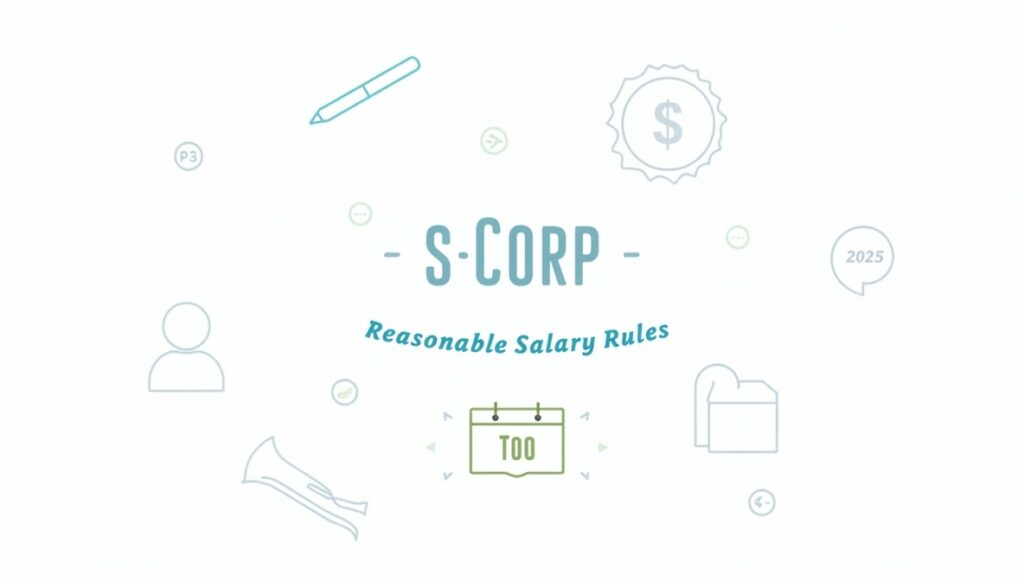
Running an S Corporation (S Corp) comes with many tax benefits. But there are also rules you must follow. One of the most important rules is about your own pay if you work for the business. The IRS has set clear S Corp salary rules. So, how low is too low? In this article, we’ll help you understand what the IRS expects and how to stay out of trouble. We’ll explain how to follow the S Corp salary rules with simple examples.
Page 1: What Is a Reasonable Salary for an S Corp Owner?
When you own an S Corp and work in it, you need to pay yourself a fair wage before taking distributions. Distributions are taxed less than salaries. So some owners try to pay themselves less to avoid payroll taxes. But that can lead to problems with the IRS.
A reasonable salary means the amount someone else would be paid for the same job. For example, if most web developers make $80,000 a year, paying yourself only $10,000 to avoid taxes is not reasonable.
In 2025, the IRS is still very strict about this. They look at your job role, how much you work, and your company’s profit. If your S Corp makes $150,000 and you pay yourself just $20,000 while working full-time, that could be too low.
To follow S Corp salary rules and avoid penalties, ask yourself: “Is my salary close to what others earn in the same job?” If not, it may be too low.
Page 2: How Does the IRS Decide What Salary Is Reasonable?
Here are some things the IRS checks when reviewing your S Corp salary:
- Type of work – Higher-skilled or leadership jobs usually get higher pay.
- Experience – The more experience you have, the more you should earn.
- Hours worked – Full-time workers should earn a full-time salary.
- Industry pay rates – Use data from sites like BLS.gov or Glassdoor to compare.
- Business profits – A very profitable S Corp should pay its owner a fair share.
Let’s say you run a consulting business that makes $120,000 in profit. If you only pay yourself $25,000, the IRS might see that as trying to dodge taxes.
If you’d pay someone else $70,000 to do what you do, but you only take $15,000 in salary, that’s likely too low. That breaks S Corp salary rules. So again: how low is too low? It’s when your pay doesn’t match your role or profits.
Page 3: Tips to Follow S Corp Salary Rules in 2025
Want to avoid issues with the IRS? Follow these steps:
- Look up fair wages. Use trusted sources to find typical salaries for your job.
- Write it down. Document how you decided your salary amount.
- Pay yourself often. Use a payroll system and follow a regular schedule.
- Get help. Talk to a CPA or tax expert who knows about S Corps.
The main point: Follow S Corp salary rules. How low is too low? Any amount that doesn’t reflect your real job, time, and profit can be seen as too low by the IRS.
In 2025, the IRS is using more data and technology to check small business payrolls. That means it’s easier for them to spot when an owner is underpaying themselves.
So if you’re asking, “How low is too low?” under the S Corp salary rules, compare your pay to others in your field. If you wouldn’t pay someone else that amount for your job, you’re probably paying too little.
Bottom line: A fair salary keeps your S Corp safe. Follow the salary rules, document your choices, and pay yourself like a real employee. That’s how to stay out of trouble in 2025.


